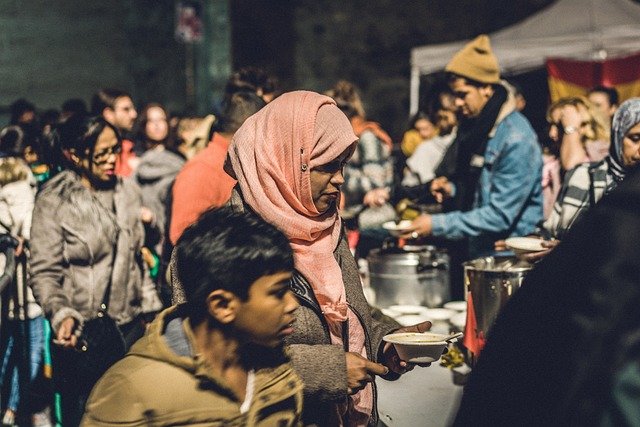Neolocalism: Rediscovering Community in a Globalized World
The quest for local identity is reshaping how we connect with our communities and the world at large. Neolocalism, a growing movement that celebrates local distinctiveness while embracing global interconnectedness, is transforming social landscapes across the globe. Read below to explore how this phenomenon is redefining our sense of place and belonging in an increasingly borderless world.

The Roots of Neolocalism
The concept of neolocalism can be traced back to the late 20th century, emerging as a response to the rapid acceleration of globalization. As multinational corporations expanded their reach and mass media began to create a more uniform global culture, many individuals found themselves yearning for a stronger connection to their immediate surroundings. This desire for local distinctiveness was not a rejection of globalization per se, but rather an attempt to find balance between global connectivity and local identity.
Sociologists and geographers began to observe this trend in the 1990s, noting how communities were actively working to differentiate themselves and celebrate their unique characteristics. The term neolocalism was coined to describe this phenomenon, distinguishing it from traditional localism by emphasizing its occurrence within a globalized context. Unlike isolationist movements of the past, neolocalism acknowledges the benefits of global interconnectedness while seeking to preserve and promote local flavor.
The Many Faces of Neolocalism
Neolocalism manifests in various ways across different sectors of society. In the economic sphere, it often takes the form of support for local businesses, artisans, and farmers. Farmers markets, craft breweries, and boutique shops selling locally-made goods have experienced a resurgence in popularity. These enterprises not only provide economic benefits to local communities but also serve as focal points for social interaction and cultural expression.
In the realm of culture and heritage, neolocalism has sparked renewed interest in local history, traditions, and folklore. Communities are investing in the preservation of historical sites, reviving traditional festivals, and promoting local arts and crafts. This cultural renaissance often attracts tourists seeking authentic experiences, creating a symbiotic relationship between local pride and economic development.
The Digital Paradox
Interestingly, the rise of neolocalism coincides with unprecedented global connectivity through digital technologies. This apparent paradox actually demonstrates the nuanced nature of the movement. Social media and online platforms have become powerful tools for promoting local identities and connecting like-minded individuals within communities. Local Facebook groups, neighborhood-focused apps, and geographically-targeted content all contribute to a sense of digital localism that complements real-world community engagement.
Moreover, the ability to work remotely has allowed many individuals to choose their place of residence based on lifestyle preferences rather than job location. This newfound flexibility has led to the revitalization of small towns and rural areas, as people seek out communities that align with their values and desired quality of life.
Neolocalism and Sustainability
Environmental concerns play a significant role in the neolocalist movement. The emphasis on local production and consumption aligns closely with sustainability goals, reducing transportation emissions and promoting responsible resource management. Community gardens, local food cooperatives, and farm-to-table restaurants exemplify how neolocalism intersects with environmental stewardship.
Furthermore, neolocalism often encourages a deeper connection to the natural environment of a particular place. This heightened awareness of local ecosystems can foster a sense of responsibility and motivate conservation efforts. As communities become more invested in their immediate surroundings, they are more likely to engage in practices that protect and preserve local natural resources.
Challenges and Criticisms
While neolocalism offers many benefits, it is not without its challenges and criticisms. One concern is the potential for exclusivity and xenophobia if taken to extremes. There is a fine line between celebrating local identity and rejecting outside influences or newcomers. Communities must navigate this balance carefully to ensure that neolocalism remains an inclusive and welcoming movement.
Another challenge lies in the economic realities of globalization. While there is growing support for local businesses, many communities still rely heavily on global supply chains and multinational corporations for employment and essential goods. Striking a balance between local economic development and participation in the global economy remains a complex issue for many regions.
The Future of Neolocalism
As we look to the future, neolocalism is likely to continue evolving in response to global trends and local needs. The COVID-19 pandemic has accelerated many aspects of this movement, as lockdowns and travel restrictions forced people to engage more deeply with their immediate surroundings. This renewed focus on local communities may have lasting effects on how we work, socialize, and consume.
The challenge moving forward will be to harness the positive aspects of neolocalism—community engagement, sustainability, cultural preservation—while avoiding the pitfalls of insularity and economic stagnation. By fostering a sense of place that is both deeply rooted and globally connected, neolocalism has the potential to create more resilient, vibrant, and sustainable communities in an increasingly complex world.
As individuals and societies grapple with the tensions between global integration and local identity, neolocalism offers a compelling framework for reimagining our relationship to place and community. By celebrating the unique characteristics of our local environments while remaining open to the broader world, we can cultivate a sense of belonging that enriches our lives and strengthens our communities.






